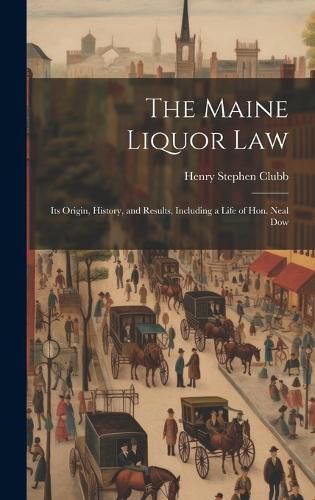Readings Newsletter
Become a Readings Member to make your shopping experience even easier.
Sign in or sign up for free!
You’re not far away from qualifying for FREE standard shipping within Australia
You’ve qualified for FREE standard shipping within Australia
The cart is loading…






A historical account of the temperance movement and the role played by Maine politician Neal Dow in banning the sale and consumption of alcohol in the state. Henry Stephen Clubb, a journalist and lecturer, provides a vivid and engaging narrative of the social, economic, and political forces that led to the passage of the Maine Liquor Law in 1851 and its aftermath. This book is an important document of a key moment in American history.
This work has been selected by scholars as being culturally important, and is part of the knowledge base of civilization as we know it.
This work is in the "public domain in the United States of America, and possibly other nations. Within the United States, you may freely copy and distribute this work, as no entity (individual or corporate) has a copyright on the body of the work.
Scholars believe, and we concur, that this work is important enough to be preserved, reproduced, and made generally available to the public. We appreciate your support of the preservation process, and thank you for being an important part of keeping this knowledge alive and relevant.
$9.00 standard shipping within Australia
FREE standard shipping within Australia for orders over $100.00
Express & International shipping calculated at checkout
A historical account of the temperance movement and the role played by Maine politician Neal Dow in banning the sale and consumption of alcohol in the state. Henry Stephen Clubb, a journalist and lecturer, provides a vivid and engaging narrative of the social, economic, and political forces that led to the passage of the Maine Liquor Law in 1851 and its aftermath. This book is an important document of a key moment in American history.
This work has been selected by scholars as being culturally important, and is part of the knowledge base of civilization as we know it.
This work is in the "public domain in the United States of America, and possibly other nations. Within the United States, you may freely copy and distribute this work, as no entity (individual or corporate) has a copyright on the body of the work.
Scholars believe, and we concur, that this work is important enough to be preserved, reproduced, and made generally available to the public. We appreciate your support of the preservation process, and thank you for being an important part of keeping this knowledge alive and relevant.